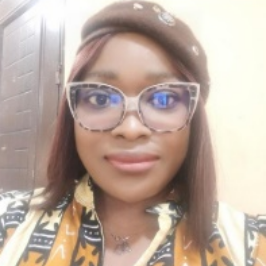International Journal of Information Technology and Computer Science (IJITCS)
IJITCS Vol. 16, No. 5, 8 Oct. 2024
Cover page and Table of Contents: PDF (size: 1025KB)
A Comparative Model for Blurred Text Detection in Wild Scene Using Independent Component Analysis (ICA) and Enhanced Genetic Algorithm (Using a Bird Approach) with Classifiers
PDF (1025KB), PP.101-113
Views: 0 Downloads: 0
Author(s)
Index Terms
Artificial Intelligence, Pattern Recognition, Scene Text Recognition, Blurred Text Recognition, Bird Approach-genetic Algorithm
Abstract
The advent of the study of Scene Text Detection and Recognition has exposed some significant challenges text recognition faces, such as blurred text detection. This study proposes a comparative model for detecting blurred text in wild scenes using independent component analysis (ICA) and enhanced genetic algorithm (E-GA) with support vector machine (SVM) and k-nearest neighbors (KNN) as classifiers. The proposed model aims to improve the accuracy of blurred text detection in challenging environments with complex backgrounds, noise, and illumination variations. The proposed model consists of three main stages: preprocessing, feature extraction, and classification. In the preprocessing stage, the input image is first preprocessed to remove noise and enhance edges using a median filter and a Sobel filter, respectively. Then, the blurred text regions are extracted using the Laplacian of Gaussian (LoG) filter. In the feature extraction stage, ICA is used to extract independent components from the blurred text regions. The extracted components are then fed into an E-GA-based feature selection algorithm to select the most discriminative features. The E-GA simply fine tunes the selection functionalities of the traditional GA using a bird approach. The selected features are then normalized and fed into the SVM and KNN classifiers. Experimental results on a benchmarking dataset (ICDAR 2019 LSVT) shows that the model outperforms state-of-the-art methods in terms of detection accuracy, precision, recall, and F1-score. The proposed model achieves an overall accuracy of 95.13% for SVM and 88.69% for KNN, which is significantly higher than the already existing methods which for SVM is 93%. In conclusion, the proposed model provides a promising approach for detecting blurred text in wild scenes. The combination of ICA, E-GA, and SVM/KNN classifiers enhances the robustness and accuracy of the detection system, which can be beneficial for a wide range of applications, such as text recognition, document analysis, and security systems.
Cite This Paper
Nwufoh C.V., Sakpere W., "A Comparative Model for Blurred Text Detection in Wild Scene Using Independent Component Analysis (ICA) and Enhanced Genetic Algorithm (Using a Bird Approach) with Classifiers", International Journal of Information Technology and Computer Science(IJITCS), Vol.16, No.5, pp.101-113, 2024. DOI:10.5815/ijitcs.2024.05.07
Reference
[1]Francis, L. Mary., & Sreenath, N. Robust scene text recognition: Using manifold regularized Twin-Support Vector Machine. Journal of King Saud University - Computer and Information Sciences, 34(3), 589–604. 2022 doi: 10.1016/j.jksuci.2019.01.013
[2]Ojha, V. Kumar., Jackowski, Konrad., Abraham, Ajith., & Snasel, Vaclav. Dimensionality reduction, and function approximation of poly(lactic-co-glycolic acid) micro- and nanoparticle dissolution rate. International Journal of Nanomedicine, 1119. 2015. doi: org/10.2147/IJN.S71847
[3]Liang, Xiao., Wang, Xuewei., Lyu, Litong., Han, Yanjun., Zheng, Jinjin., Guo, Wenwu., & Guo, Jingbo. Noise-immune image blur detection via sequency spectrum truncation. Complex & Intelligent Systems, 8(2), 1323–1337. 2021 doi: 10.1007/s40747-021-00592-7
[4]Prasath, Surya., Alfeilat, Haneen. Arafat. Abu., Hassanat, Ahama., Lasassmeh, Omar., Tarawneh, A. S., Alhasanat, M. B., & Salman, H. S. E. Distance and Similarity Measures Effect on the Performance of K-Nearest Neighbor Classifier -- A Review. 2017 Doi:10.1089/big.2018.0175
[5]Yasmeen, Ujala., Hussain Shah, Attique Khan, Jillani Ansari, Rehman, S., Sharif, Muhammad., Kadry, Seifedine., & Nam, Yunyoung. Text Detection and Classification from Low Quality Natural Images. Intelligent Automation & Soft Computing, 26(4), 1251–1266 2020. Doi:10.32604/iasc.2020.012775
[6]Katoch, Sourabh., Chauhan, Sumit. Singh., & Kumar, Vijay. A review on genetic algorithm: past, present, and future. Multimedia Tools and Applications, 80(5), 8091–8126 2021b. doi:10.1007/s11042-020-10139-6
[7]Chen, Mengmeng., Ibrayim, Mayire., & Hamdulla, Askar. AAF-Net: Scene text detection based on attention aggregation features. PLOS ONE, 17(8), e0272322 2022. doi:10.1371/journal.pone.0272322
[8]Romero, Ruben., Iglesias, Eva. Lorenzo., & Borrajo, Lourdes. A Linear-RBF Multikernel SVM to Classify Big Text Corpora. BioMed Research International, 2015, 1–14. https://doi.org/10.1155/2015/878291
[9]Zhou, Fenfen., Cai, Yuanqiang., & Tian, Yingjie. TextDC: Exploring Multidimensional Text Detection via a New Benchmark and Solution. Electronics, 12(1), 159, 2022. doi: 10.3390/electronics12010159
[10]Butt, Hanan., Raza, Muhammad. Raheel., Ramzan, Muhammad. Javed., Ali, Muhammad. Junaid., & Haris, Muhammad. Attention-Based CNN-RNN Arabic Text Recognition from Natural Scene Images. Forecasting, 3(3), 520–540. 2021. doi:10.3390/forecast3030033
[11]Chien, Jen-Tzung. Independent Component Analysis. In Source Separation and Machine Learning (pp. 99–160). Elsevier. 2019. Doi:10.1016/B978-0-12-804566-4.00016-4
[12]Dwivedi, Yogesh. Kumar., Ismagilova, Elvira., Hughes, D. Laurie., Carlson, Jamie., Filieri, Raffaele., Jacobson, Jenna., Jain, Varsha., Karjaluoto, Heikki., Kefi, Hajer., Krishen, Anjala. S., Kumar, Vikram., Rahman, Mohammad. Mahfuzur., Raman, Ramakrishnan., Rauschnabel, Philip. A., Rowley, Jennifer., Salo, Jari., Tran, Gina., & Wang, Yichuan. (2021). Setting the future of digital and social media marketing research: Perspectives and research propositions. International Journal of Information Management, 59, 102168. 2021. Doi:10.1016/j.ijinfomgt.2020.102168
[13]Pandey, B., Pandey, D., Wariya, Subodh., Aggarwal, Gaurav., & Rastogi, Rahul. Deep Learning and Particle Swarm Optimisation-Based Techniques for Visually Impaired Humans’ Text Recognition and Identification. Augmented Human Research, 6(1), 14. 2021. doi:10.1007/s41133-021-00051-5
[14]Xue, Minglong., Shivakumara, Palaiahnakote., Zhang, Chao., Lu, Tong., & Pal, Umapada. Curved text detection in blurred/non-blurred video/scene images. Multimedia Tools and Applications, 78(18), 25629–25653. 2019. Doi:10.1007/s11042-019-7721-2
[15]Li, Jinyang., Liu, Zhijing., & Yao, Yong. Defocus Blur Detection and Estimation from Imaging Sensors. Sensors, 18(4), 1135. 2018. Doi:10.3390/s18041135
[16]Gholami, Raoof., & Fakhari, Nikoo. Support Vector Machine: Principles, Parameters, and Applications. In Handbook of Neural Computation (pp. 515–535). Elsevier. 2017. /doi:10.1016/B978-0-12-811318-9.00027-2
[17]Hicks, Steven., Strümke, Inga., Thambawita, Vajira., Hammou, Malek., Riegler, Michael., Halvorsen, Pal., & Parasa, Sravanthi. On evaluation metrics for medical applications of artificial intelligence. Scientific Reports, 12(1), 5979. 2022. doi:10.1038/s41598-022-09954-8
[18]Tharwat, Alaa. Independent component analysis: An introduction. Applied Computing and Informatics, 17(2), 222–249. 2021. doi:10.1016/j.aci.2018.08.006
[19]Raisi, Zobeir., Naiel, Mohammed. A., Fieguth, Paul., Wardell, Steven., & Zelek, John. 2020. Text Detection and Recognition in the Wild: A Review.
[20]Katoch, Sourabh., Chauhan, Sumit. Singh., & Kumar, Vijay. A review on genetic algorithm: past, present, and future. Multimedia Tools and Applications, 80(5), 8091–8126. 2021a. doi:10.1007/s11042-020-10139-6
[21]Vujovic, Zeljko. Classification Model Evaluation Metrics. International Journal of Advanced Computer Science and Applications. Volume 12. 599-606. 2021.10.14569/IJACSA.2021.0120670.

